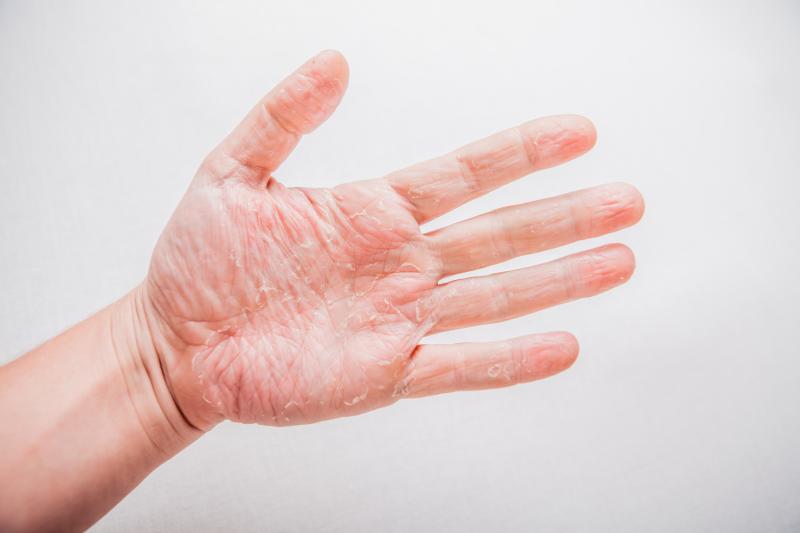
Patients with cancer who are receiving vascular endothelial growth factor receptor–tyrosine kinase inhibitors (VEGFR-TKIs) are at increased risk of developing hand-foot skin reaction (HFSR), results of a recent meta-analysis have shown.
“Multiple randomized controlled trials have assessed HFSR caused by VEGFR-TKIs,” the investigators noted.
A meta-analysis was then performed to determine the incidence and the relative risk (RR) of HFSR associated with these medications. The investigators searched databases for relevant studies and carried out statistical analyses to calculate summary incidences, RR, and 95 percent confidence intervals (CIs) via random-effects or fixed-effects models, based on the heterogeneity of the eligible studies.
Fifty-seven studies involving a total of 24,956 patients met the inclusion criteria. The overall incidence of all-grade HFSR associated with VEGFR-TKIs was 35.0 percent (95 percent CI, 28.6–41.6 percent) while that of high-grade HFSR was 9.7 percent (95 percent CI, 7.3–12.3 percent).
Use of VEGFR-TKIs was associated with a marked increase in the risk of developing all-grade (RR, 5.09, 95 percent CI, 3.52–7.35; p<0.001) and high-grade (RR, 9.42, 95 percent CI, 5.59–15.90; p<0.001) HSFR.
On subgroup analyses, the significant increase in the risk of HFSR was driven by the following factors: tumour type, VEGFR-TKI, trial phase, treatment regimen, and control therapy. There was no evidence of publication bias observed.
This meta-analysis was limited by the high heterogeneity in most studies, according to the investigators.